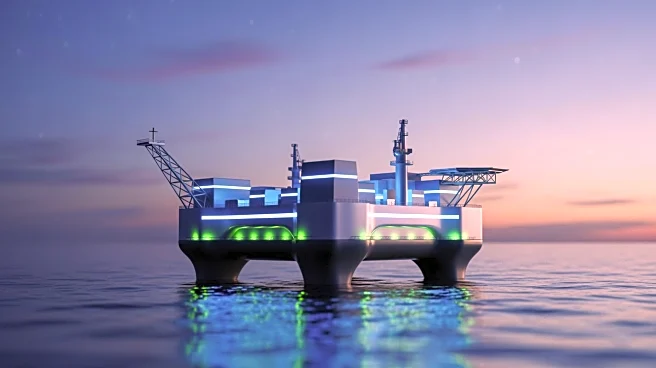What's Happening?
The COP30 climate talks in Belem, Brazil, ended with an agreement that renews commitments to tackle rising temperatures but lacks a concrete plan for transitioning away from fossil fuels. The negotiations
were marked by Indigenous protests, the absence of the US, and a venue evacuation due to a fire. Despite calls from over 80 countries for a roadmap to move beyond coal, oil, and gas, the final document only proposes voluntary initiatives to accelerate national climate plans. The deal includes a call for wealthy nations to triple adaptation funding by 2035, aiming to support vulnerable countries facing extreme weather.
Why It's Important?
The absence of a fossil fuel transition roadmap highlights the challenges in achieving global consensus on climate action. The reliance on voluntary initiatives may limit the effectiveness of efforts to reduce emissions and combat climate change. The agreement's focus on adaptation finance reflects the urgent need to support countries disproportionately affected by climate impacts. The inclusion of trade discussions in the final text indicates a shift in the COP process, adapting to geopolitical changes and addressing contentious green trade measures. These developments could influence future climate policies and international cooperation.
What's Next?
COP30 President Andre Correa do Lago announced plans for voluntary roadmaps to transition away from fossil fuels and halt deforestation, inviting countries to join these initiatives. The first-ever conference on ending reliance on oil, gas, and coal is scheduled to be held in Colombia in April. The agreement's call for increased adaptation funding may lead to further discussions on financing mechanisms and support for vulnerable nations. The establishment of dialogues on trade measures could impact future negotiations and international trade policies related to climate change.
Beyond the Headlines
The COP30 talks underscore the complexities of international climate negotiations, where economic interests and geopolitical tensions often influence outcomes. The focus on adaptation finance and trade discussions reflects broader shifts in the COP process, addressing the needs of vulnerable nations and adapting to changing geopolitical landscapes. The voluntary roadmaps and upcoming conference on fossil fuel transition may provide opportunities for countries to collaborate on climate solutions outside the formal UN framework. These developments highlight the ongoing challenges and opportunities in global climate policy.








